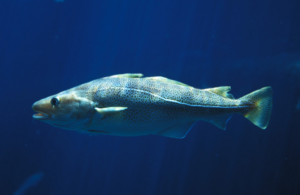UK secures £970 million of fishing opportunities for 2024
UK fishing fleet to have access to 750,000 tonnes of fishing opportunities in 2024 and total value of fishing opportunities increases from £900 million in 2023

The UK fishing industry will have access to 420,000 tonnes of fishing opportunities worth up to £700 million after agreements were reached with the EU and Norway, the UK Government has announced.
This brings the total fishing opportunities secured for the UK fleet in 2024 in the main negotiating forums to 750,000 tonnes – 80,000 tonnes more than in 2023 - worth up to £970 million based on historic landing prices.
The deal with the EU has secured UK fishermen access to opportunities of 130,000 tonnes for 2024, worth up to £340 million.
The trilateral deal with the EU and Norway secures access to opportunities of 290,000 tonnes of North Sea stocks, worth around £360 million.
This is on top of 330,000 tonnes, worth around £270 million, from catch limits agreed earlier in the year on widely distributed stocks with coastal States in the northeast Atlantic.
As a result of quota share uplifts agreed in the Trade and Cooperation Agreement, the UK has up to 120,000 tonnes more quota from the 2024 negotiations than it would have received as an EU Member State.
In the fourth year of the UK operating as an independent coastal state in the negotiations, catch levels were agreed for over 80 important total allowable catches (TACs). This included key commercial stock across the industry, including northern shelf cod, North Sea saithe, and Nephrop stocks in the Celtic/Irish Sea.
Fisheries Minister Mark Spencer said:
These significant deals give UK fishermen access to important fish stocks worth £970 million and take advantage of our position outside the EU to independently negotiate in our fishing fleets best interest.
They are based on the latest scientific advice and support a sustainable, profitable fishing sector for years to come while continuing to protect our marine environment and vital fishing grounds.
Sustainability has been at the heart of the UK’s approach to negotiations, pushing for decisions based on the best available science to protect key stocks and support the long-term viability of the UK fishing industry. Advice from scientists at the International Council for the Exploration of the Sea (ICES) is the starting point for the UK’s approach and, where possible, catch limits have been set at or within these advised levels.
A provisional estimate is that the same number of jointly managed stocks have been set in line with or lower than the levels advised by ICES scientists compared to last year, despite challenging advice for a number of stocks. A full and independent review of the sustainability of negotiated outcomes will be published early in the new year.
The outcome of annual fisheries negotiations will be published in the Secretary of State determination of fishing opportunities for British boats by the end of the year.
Further information
The Agreed Records for the negotiations can be seen here:
As a result of quota share uplifts agreed in the Trade and Cooperation Agreement, the UK has more quota from these negotiations than it would have received with its previous shares as an EU Member State.
Values based on full uptake of fishing opportunities.
Bilateral fisheries negotiations between the UK and Norway and those between the UK and the Faroe Islands are currently on-going.
Throughout the negotiations, the UK Government has worked closely with the Devolved Administrations to ensure the benefits of the negotiations are spread across the UK. For example, Scottish fishermen will benefit from quota for Northern shelf cod, Welsh fishermen will benefit from a rolled over access measures in seabass, and fishermen from Northern Ireland will benefit from increased quota for Nephrops.
Outcome of UK/EU bilateral negotiations
This deal set catch limits of around 70 total allowable catches (TACs). The agreement also commits the UK and EU to work together to provide more sustainable fisheries management, including to review the effectiveness of existing measures to protect the recently reopened spurdog fishery.
The agreement also includes a by-catch only total allowable catch for pollack, following ICES advice published earlier this year. The government recognises the impact of this on sections of the UK fleet and has been engaging regularly with the south-west to explore potential mitigations.
Outcome of UK/EU/Norway trilateral negotiations
This deal agreed catch limits on six North Sea fish stocks including cod, haddock and herring and further stocks in other waters around the UK.